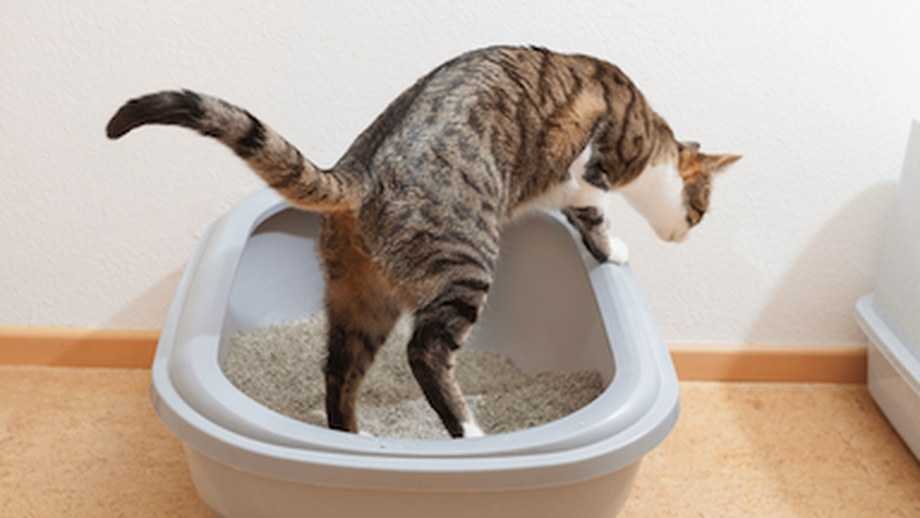Picture this: you wake up to a pungent smell you just know is not coffee. The once pristine floor is now a soggy mess. For many cat owners, this scenario is a familiar nightmare. The mystery of why cats decide to “go” outside the litter box is perplexing and frustrating. But don’t despair, understanding the reasons behind this behavior can be the first step to restoring peace and cleanliness to your home.

Image: atelier-yuwa.ciao.jp
This article will delve into the common culprits behind feline bathroom mishaps, providing you with the tools to troubleshoot the issue and get your cat back on track with proper litter box etiquette. By understanding the underlying causes, you can implement strategies to address the problem and create a happy and hygienic environment for both you and your furry friend.
Understanding the Root of the Problem
While it may seem like your cat is deliberately trying to make your life difficult, the reality is they are often communicating a problem. Cats are notoriously clean animals and generally prefer to use their designated litter box. When they choose to pee outside of it, something is amiss.
The most common reason behind a cat peeing on the floor instead of the litter box is medical. Urinary tract infections (UTIs), bladder stones, and other health conditions can cause pain and discomfort when urinating, making them avoid the litter box out of instinct. If you suspect a medical issue, it’s imperative to consult a veterinarian for diagnosis and treatment.
Beyond Medical Causes
Litter Box Issues
Beyond medical factors, several other potential causes contribute to a cat’s aversion to their designated litter box. The most frequent culprit is the litter box itself. Cats are creatures of habit and prefer cleanliness. If the litter box is dirty, soiled, or too small, your cat may choose to relieve themselves elsewhere. Similarly, the type of litter used can play a role in their decision. Some cats dislike the texture or scent of certain litters.

Image: www.victoriana.com
Location, Location, Location
The placement of the litter box is another key factor. Cats like privacy and may avoid a litter box that feels exposed or too close to their food or water bowls. Ideally, the litter box should be placed in a quiet and easily accessible area, allowing your cat to use it without feeling stressed or exposed.
Stress and Anxiety
While less obvious, stress and anxiety can also contribute to litter box problems. Changes in the environment, such as new pets, moving, or even renovations, can trigger anxiety in your cat, leading to behavioral changes, including inappropriate urination.
Territoriality
Sometimes, a cat’s desire to mark their territory can lead to urination outside the litter box. This is more common in multi-cat households where cats may feel compelled to mark their space. Sprays and pheromone diffusers can help minimize this behavior.
Tips to Encourage Proper Litter Box Use
Now that we’ve explored the possible causes behind litter box issues, let’s look at practical solutions to correct this problem.
Firstly, make sure you are providing a clean and inviting litter box experience. Scoop the litter box multiple times a day, especially after each use. If your cat uses a covered litter box, check frequently for odors as they can build up more quickly. Consider switching to a different type of litter; you can even try a multi-litter approach, placing different types of litters in separate boxes. Ensure the boxes are large enough for your cat to move around comfortably, with enough room to relieve themselves without feeling crowded.
Second, consider the location of the litter box. Choose a quiet and private spot that is easily accessible. Make sure the litter box is away from food and water bowls, and consider adding a second litter box if you have a multi-cat household.
Thirdly, address potential stress factors that may contribute to your cat’s anxiety. This may involve introducing a new cat slowly, creating a safe space for your cat, or providing more enrichment activities to reduce boredom.
Finally, if the problem persists, it’s essential to consult a veterinarian to rule out any medical conditions. They can also provide guidance on behavioral modification techniques and specialized products to manage stress and anxiety.
Frequently Asked Questions
- Q: My cat only pees outside the litter box at night. What could be the reason?
- A: This could be related to several factors, including a medical issue affecting the cat’s ability to hold urination overnight. It’s also possible the cat is afraid of something at night, leading to anxiety and inappropriate urination.
- Q: My cat started peeing outside the litter box after I brought a new pet home. What can I do?
- A: Introducing a new pet can trigger anxiety in your cat, leading them to act out. Gradually introduce the new pet, provide your cat with a safe space, and use pheromone diffusers to help ease the transition.
- Q: I’ve tried everything but my cat still pees outside the litter box. What should I do?
- A: If you’ve made all the necessary changes and your cat continues to urinate outside the litter box, consulting a veterinarian is essential. They can perform a thorough examination to rule out any medical conditions and provide guidance on behavior modification techniques.
Cat Peeing On The Floor Instead Of Litter Box
Conclusion
Litter box issues can be frustrating, but understanding the causes can help you find solutions. By providing a clean and appealing litter box environment, considering the location, addressing stress factors, and seeking veterinary care when necessary, you can help your cat establish healthy litter box habits.
Are you experiencing similar issues with your cat? Share your experiences and any helpful tips you’ve found in the comments below. Let’s help each other create a harmonious and fragrance-free home for our furry companions.






